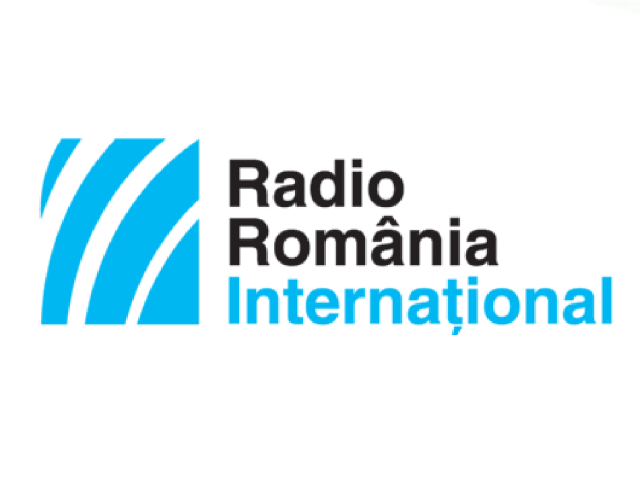Aktionsgruppe Banat
Initially, the movement emerged in 1972 in the form of a literary circle, made up of nine members, at a high-school in Sannicolau Mare, against the background of the ideological relaxation announced in the mid 1960s. In April 1972, the newspaper in German “Neue Banater Zeitung, issued in Timisoara, carried an article expressing the views of young writers on literature and social reality, and the situation of the youth in general. The members embarked on a mission to become an action group on behalf of the young writers, hence the name of the movement. Soon, Aktionsgruppe Banat became an unconventional cultural group, driven by social criticism and political action against the Ceausescu regime.

Steliu Lambru, 26.03.2018, 13:51
Initially, the movement emerged in 1972 in the form of a literary circle, made up of nine members, at a high-school in Sannicolau Mare, against the background of the ideological relaxation announced in the mid 1960s. In April 1972, the newspaper in German “Neue Banater Zeitung, issued in Timisoara, carried an article expressing the views of young writers on literature and social reality, and the situation of the youth in general. The members embarked on a mission to become an action group on behalf of the young writers, hence the name of the movement. Soon, Aktionsgruppe Banat became an unconventional cultural group, driven by social criticism and political action against the Ceausescu regime.
According to historian Corneliu Pintilescu from the “George Baritiu History Institute in Cluj-Napoca, the group was influential from the very beginning. Just like all intellectuals during the Communist regime, when censorship was powerful, the members of the Banat Action Group, too, were faced with problems relating to the articles they wanted to publish. And, just like many other young writers of the time, the young German writers resorted to humour. Also, at first, the group was difficult to repress, because ideologically it stemmed from Marxism.
Corneliu Pintilescu: “The group activated in Timisoara, but it then spread to other towns in Banat, between 1972-1975 in particular. Later, it would also influence many writers such as Herta Muller. Even if they were not part of the Aktionsgruppe Banat as such, Muller and other writers like her were influenced by the group. The circle would be reinvented later in other forms. Whats specific about this Aktionsgruppe Banat is that it assumed to have stemmed from the Western critical Marxism and to have tried to emulate, to imitate the spirit of revolt in the 1968 western universities. One of the achievements of that literary circle was that they produced a series of texts, which subtly criticized the realities of Romania between 1970-1980. Their criticism was made from a Marxist perspective, which somehow puzzled the then secret police, the Securitate. These writers managed to have a lot of their writings published, despite the fact that they were carefully surveyed and some of them even arrested and investigated. The Criterion publishers, for instance, published many of these writers texts, which points to a certain ambiguity in their relationship with the power. Another interesting aspect was the network of connections with the Marxist media in the Federal Republic of Germany and Austria. In the 1970s they had many texts carried by left-wing magazines in the West.
The Banat action group experimented a lot, they signed the texts both individually and collectively. Consequently, the repression bodies changed their attitude to face the newly created situation.
Corneliu Pintilescu: “The case of the Banat group was special, it very well illustrated the general policies of the Communist regime and of the Securitate regarding the intellectuals in the 1970-1980. The group managed to document well the whole process of the Securitates transforming their methods, techniques and policies from one period to another. In 1971, William Totok was arrested and investigated by the Securitate for having sent a letter to Radio Free Europe. But at the end of the investigation he was released because the Securitate officers considered that his gesture was not that serious. They suggested that the author should be re-educated at a meeting of the Communist Youth Union. By way of comparison, in the 1980s, the Securitate put aside the moderate measures of domesticating the cultural opposition to resort to more violent, repressive measures. This is also relevant for the Securitates policies regarding the intellectual elites of the German minority during Ceausescus regime, as it captured the specificity of the German minority, namely its strong ties with the Federal Republic of Germany, with the German-speaking space in the West.
In order to decode the humour in the texts that presented the epochs social reality, the Securitate used literary experts. Thus, according to some historians, the repression apparatus also specialized in literary interpretations, while others said that a “political police aesthetics was created. Humour could hardly be transformed into political guilt and the Securitate did understand that. As regards writer William Totok, they tried to make him one of their collaborators.
Corneliu Pintilescu: “Source Thomas, namely writer William Totok, best exemplifies how an individual experienced the three stages of the relationship one could have with the Securitate. He was followed, investigated and turned into a source of information. He started being monitored in 1971 when the Securitate discovered the letters he had sent to Radio Free Europe in the late 1960s from Sannicolau Mare. They discovered that totally by chance, as Totoks mother wrote about that issue in a letter to another person. Totok was arrested and investigated and although his file was quite big, the Securitate chose not to arraign him. In the mid 1970s when Totok was an active participant in the Aktionsgruppe Banat meetings, the Securitate became interested in attracting him into collaboration with them. Ţotok chose to provide the information required, but he told his colleagues about that.
Aktionsgruppe Banat, like all the other opposition movements, ended up being annihilated.






























